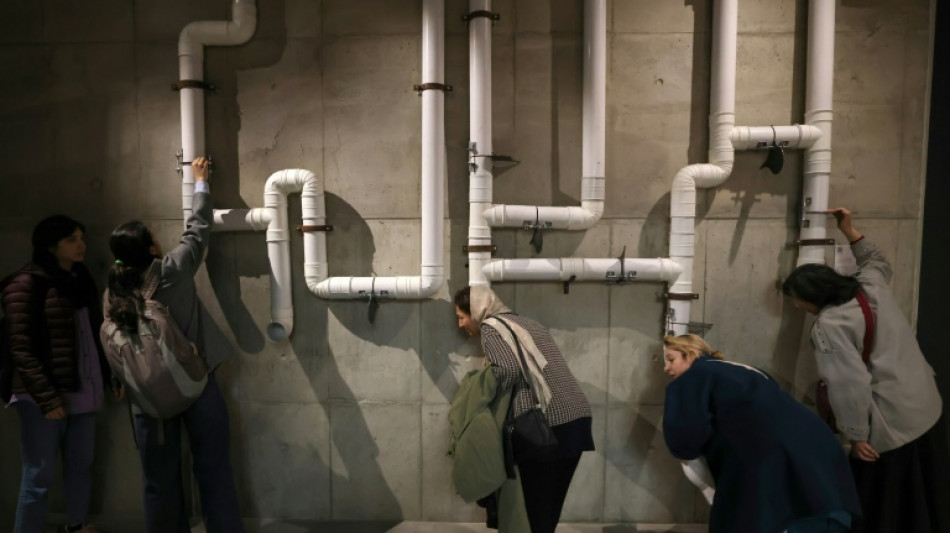
-
 Altomare hangs on to tie defending champ Korda at LPGA Match Play
Altomare hangs on to tie defending champ Korda at LPGA Match Play
-
Paraguay gold rush leaves tea producers bitter
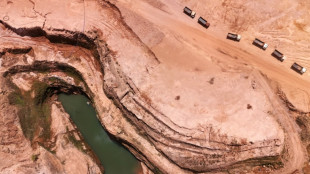
-
 Health concerns swirl as Bolivian city drowns in rubbish
Health concerns swirl as Bolivian city drowns in rubbish
-
Syria says deadly Israeli strikes a 'blatant violation'
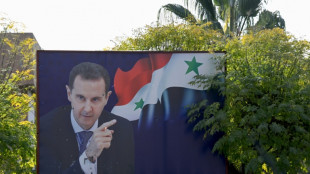
-
 Financial markets tumble after Trump tariff announcement
Financial markets tumble after Trump tariff announcement
-
Starbucks faces new hot spill lawsuits weeks after $50mn ruling

-
 Europe riled, but plans cool-headed response to Trump's tariffs
Europe riled, but plans cool-headed response to Trump's tariffs
-
'Shenmue' voted most influential video game ever in UK poll

-
 New coal capacity hit 20-year low in 2024: report
New coal capacity hit 20-year low in 2024: report
-
Revealed: Why monkeys are better at yodelling than humans

-
 Key details on Trump's market-shaking tariffs
Key details on Trump's market-shaking tariffs
-
'A little tough love': Top quotes from Trump tariff talk
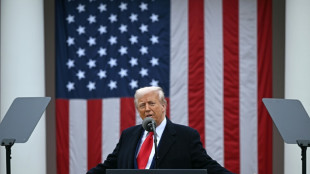
-
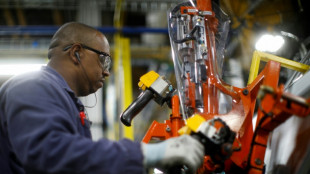 US business groups voice dismay at Trump's new tariffs
US business groups voice dismay at Trump's new tariffs
-
Grealish dedicates Man City goal to late brother

-
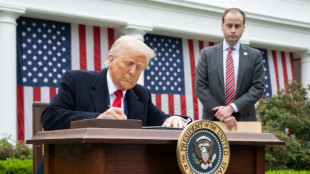 US tariffs take aim everywhere, including uninhabited islands
US tariffs take aim everywhere, including uninhabited islands
-
Trump sparks trade war with sweeping global tariffs
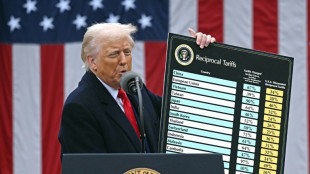
-
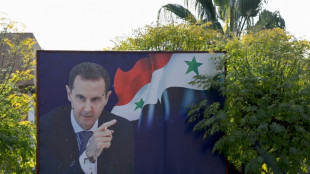 Israeli strikes hit Damascus, central Syria; monitor says 4 dead
Israeli strikes hit Damascus, central Syria; monitor says 4 dead
-
Slot 'hates' offside rule that gave Liverpool win over Everton

-
 US stocks end up, but volatility ahead after latest Trump tariffs
US stocks end up, but volatility ahead after latest Trump tariffs
-
Barca oust Atletico to set up Clasico Copa del Rey final

-
 Mourinho grabs Galatasaray coach's face after losing Istanbul derby
Mourinho grabs Galatasaray coach's face after losing Istanbul derby
-
Grealish strikes early as Man City move up to fourth in Premier League

-
 Reims edge out fourth-tier Cannes to set up PSG French Cup final
Reims edge out fourth-tier Cannes to set up PSG French Cup final
-
Liverpool beat Everton as title looms, Man City win without Haaland

-
 Jota wins bad-tempered derby as Liverpool move 12 points clear
Jota wins bad-tempered derby as Liverpool move 12 points clear
-
Inter and Milan level in derby Italian Cup semi

-
 Stuttgart beat Leipzig to reach German Cup final
Stuttgart beat Leipzig to reach German Cup final
-
Trump unveils sweeping global tariffs
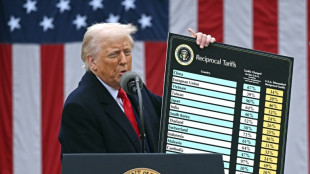
-
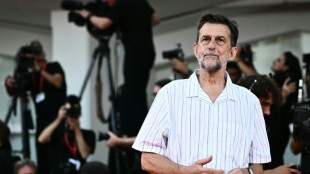 Italian director Nanni Moretti in hospital after heart attack: media
Italian director Nanni Moretti in hospital after heart attack: media
-
LIV Golf stars playing at Doral with Masters on their minds

-
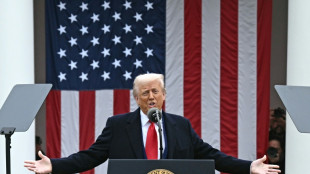 Trump unveils sweeping 'Liberation Day' tariffs
Trump unveils sweeping 'Liberation Day' tariffs
-
Most deadly 2024 hurricane names retired from use: UN agency

-
 Boeing chief reports progress to Senate panel after 'serious missteps'
Boeing chief reports progress to Senate panel after 'serious missteps'
-
Is Musk's political career descending to Earth?

-
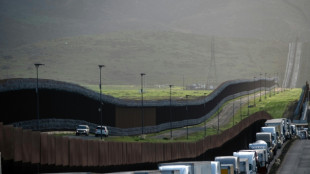 On Mexico-US border, Trump's 'Liberation Day' brings fears for future
On Mexico-US border, Trump's 'Liberation Day' brings fears for future
-
Starbucks faces new hot spill lawsuit weeks after $50mn ruling

-
 Ally of Pope Francis elected France's top bishop
Ally of Pope Francis elected France's top bishop
-
'Determined' Buttler leads Gujarat to IPL win over Bengaluru

-
 US judge dismisses corruption case against New York mayor
US judge dismisses corruption case against New York mayor
-
Left-wing party pulls ahead in Greenland municipal elections
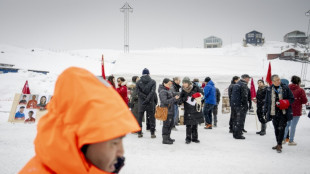
-
 Blistering Buttler leads Gujarat to IPL win over Bengaluru
Blistering Buttler leads Gujarat to IPL win over Bengaluru
-
Tesla sales slump as pressure piles on Musk

-
 Amazon makes last-minute bid for TikTok: report
Amazon makes last-minute bid for TikTok: report
-
Canada Conservative leader warns Trump could break future trade deal
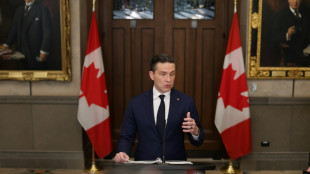
-
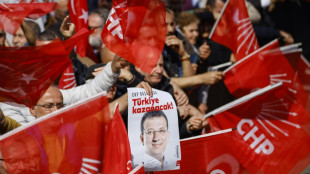 British band Muse cancels planned Istanbul gig
British band Muse cancels planned Istanbul gig
-
'I'll be back' vows Haaland after injury blow

-
 Trump to unveil 'Liberation Day' tariffs as world braces
Trump to unveil 'Liberation Day' tariffs as world braces
-
New coach Edwards adamant England can win women's cricket World Cup

-
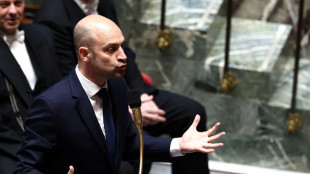 Military confrontation 'almost inevitable' if Iran nuclear talks fail: French FM
Military confrontation 'almost inevitable' if Iran nuclear talks fail: French FM
-
US stocks advance ahead of looming Trump tariffs


Iran's early recordings revive forgotten sound heritage
In a century-old building in Tehran, Saeed Anvarinejad turned the dial of a vintage radio to tune into some of Iran's earliest recorded sounds, some serving as reminders of the seismic changes that shaped the country's history.
Along with a team of fellow enthusiasts, he spent months tracking down the earliest recordings of Iranian music, speeches, interviews, theatrical plays, radio broadcasts and even the hum of daily life from more than a century ago up to the present day.
"Sound is a phenomenon we pay little attention to... although it's very important," said Anvarinejad, one of the organisers of the "SoundScape" exhibition.
And "the era of early sound recording in Iran is a very important time in the socio-political history of the country".
He highlighted the emotional power of early voice recordings, saying they captured "in a very raw and pure way... the feeling that people have at that moment," unlike written records.
According to Anvarinejad, the oldest surviving sound recordings from Iran date back to 1898 and 1899, during the reign of Mozaffar al-Din Shah of the Qajar dynasty, which reigned over the country from the late 18th to the early 20th century.
His rule saw the unfolding of the Constitutional Revolution, a pivotal moment in Iran's political transformation that established a parliament and constitutional monarchy.
"It was a time when... a new order was taking shape in the Iranian mind and very important things were happening politically, socially and culturally," he added.
"We thought it would be good to have a new approach to the sound (from that time) and engage audiences with it."
Upon tuning the wooden-framed antique radio, a chilling broadcast announced the overthrow of prime minister Mohammad Mosaddegh in 1953, who had pushed for the nationalisation of Iran's oil industry sparking a coup d'etat orchestrated by the United States and Britain.
"This is Tehran! Good news! Good news! People of the cities of Iran, be awake and alert, the traitor Mosaddegh has fled!" crackled the voice of a radio anchor.
- 'Mysterious void' -
Other audio included Iran's first recorded call to prayer in either 1912 or 1913, and the 1959 report on the death of Qamar, the first woman singer to perform in public in the country.
One striking installation at the exhibition involved a mechanical device mounted on a concrete wall with gears, chains, wheels and a lever which played old recordings of the stringed tar instrument through retro telephone handsets.
Another, "Mowj Negar", featured printed sound waves arranged in three rows on one wall, with a metal device which moved along the waves.
When moved, the device activates melodies from the Qajar and early Pahlavi (1925-1979) eras that once echoed through Iran's grand palaces and bustling city streets.
Nearby stood a wooden cabinet named "The Silent Closet", displaying a series of photos from the First World War -— but without a single accompanying sound.
"There are no sound recordings from Iran during this period, not because technology was unavailable, but likely because the country was in such turmoil that recording sound was not a priority," said Atabak Axon, another exhibition organiser.
"There was a 12-year silence that remains a mysterious void in Iran's auditory history."
For centuries, sound has played a central role in Persian culture, connecting belief with poetry and identity.
For 21-year-old Sarvin Faizian, visiting the exhibition with friends was a deeply moving experience "as if I was experiencing my parents' past."
Similarly, Fatemeh Sadeghi described feeling overwhelmed by nostalgia, while 63-year-old Kamran Asadi found the exhibition unexpectedly personal.
"It is a very good and intimate atmosphere for me," he said, lingering on an old song playing in the background.
"It is good for the younger generation to learn where Iran's heritage of music and art came from."
Th.Berger--AMWN

